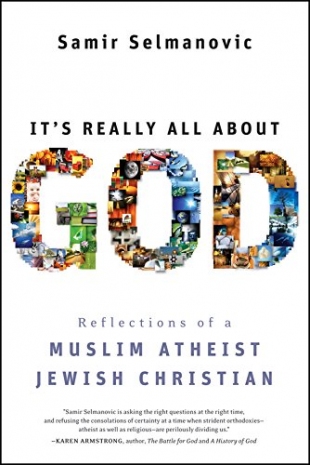"Christianity was introduced to Ireland without bloodshed, a process fairly unique in religious history. When Saint Patrick introduced his religion to the Celts around 431 C. E., he embraced the beauty of what God had been teaching the Celts before Christianity arrived. Instead of dismantling their spiritual experience, Patrick sought God outside the walls of his religion. He introduced the beauty of his faith as he learned from this often brutal but already-spiritual people, and a fresh Christian spirituality, different from its contemporary Roman counterpart, was born and grows to this day.
"Celtic Christians sought after 'thin places,' spots where the membrane between mere physical reality and the reality of God's presence thins out and becomes soft and permeable. For them, thin places are locations in space or time where God's world ('reality as it really is') intersects with our world ('reality as we happen to experience it') so that it can be seen, touched, tasted, or sensed in some unmistakable way. They believed that at places like shorelines, fjords, rivers, and wells, the veil was so sheer, one could almost step through it.
"For eight out of the past twelve years, the crowded city streets of New York City have been my thin place. I like to move from favorite people-watching spots in the city, such as Union Square Park, where people relax, to places where I can sit and watch the scurry to and from work. Although New Yorkers are burdened with heavy demands, their walk is as energetic and brisk as their lives. They move quickly and determinedly, pulled along by desire, suspecting — or, rather, knowing — that there must be something more behind the gray noise of the day made by humanity compressed into a dream factory the size of a city. Yet the city is a sacred place; God loves people, and where people are, God is. It is God's love that is compressed in this city, a thin place for the citizens who have eyes to see and ears to hear.
"A thin place could be a conversation, a dream, a room, a tree, a dawn, a shore, a dance, a person, a scientific lab, a Sabbath, a Eucharist, an early morning meal before the Ramadan fast begins. Once, while I was teaching a class at a Christian theological seminary in Michigan, a young woman raised her hand to describe the experience that led her to faith. Years ago, in her room, while working on her computer, she turned to reach for a book, and it happened. She smelled God. That's what she said. You could almost hear the rest of us in the classroom thinking, 'Oh, please. It is embarrassing characters like this that tarnish the reputation of Christianity as a respectable religion. Let's talk about something sane and real.' But she was sane and real, lucid like the bright icy Michigan day outside of the walls of the Andrews University classroom. At her thin place, she caught a scent of God, and her life took a turn.
"Thin places are stopping places where we, for at least a moment, step into what lies beyond the doorway of the world limited to our five senses. These experiences confirm our hopes and bind us to our beliefs. Two worlds become one."
